Madoka Magica is one of the best anime of the past decade. It deconstructs the magical girl genre and builds an emotional narrative filled with memorable characters. Unfortunately, the new Vita game, Madoka Magica: The Battle Pentagram, does little more than ride on the anime’s coattails.
Good — A Consistent Voice
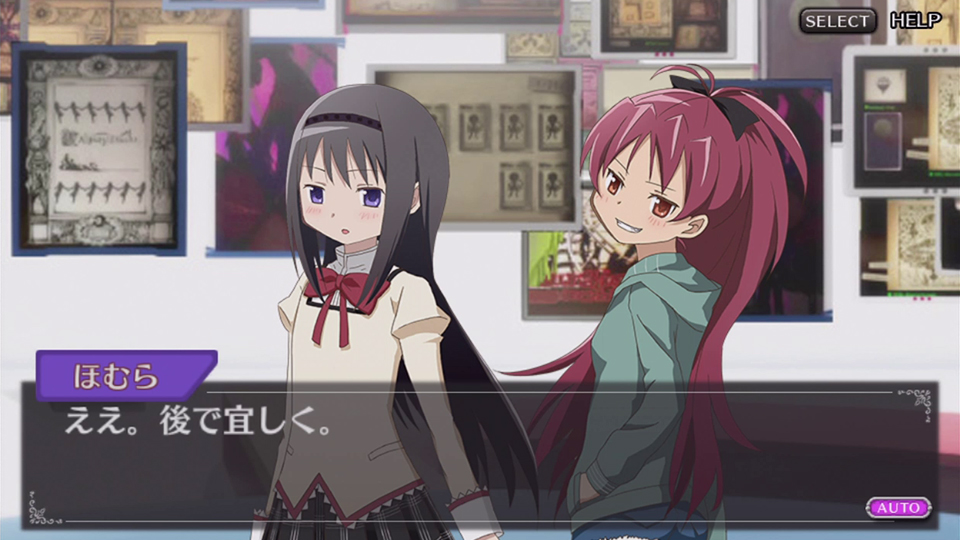
Where The Battle Pentagram does things right is in how it is written. To start with, it is all built around a “what if?” — namely, “what if Madoka asked Homura to unite the magical girls to fight and defeat Walpurgis Night?” — instead of what she asked in the anime. This sets up a plot quite different from that of the series, as the nearly antisocial Homura is forced into the position of a team leader who must bring together a mix of very different personalities. Nearly all of the game’s visual novel sections are built around exploring these character dynamics.
For a fan of the series, this can prove quite interesting. For example, seeing how Mami and Kyoko interact — as the two never meet on-screen in the series — serves to flesh out both characters in ways you might not expect. Moreover, it’s entertaining to simply watch and see how the story would unfold if everyone were united from the start.
All in all, the best thing about the game is how, despite forging into uncharted territory, everyone stays in-character — a fact reinforced thanks to the cast of the anime returning to voice their roles once again.
Good — Five Unique Characters
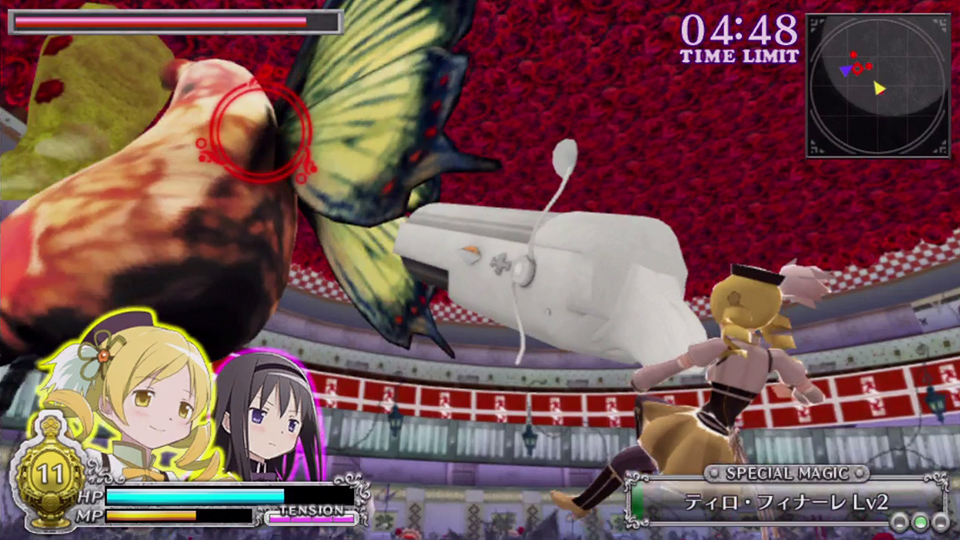
The second strong point of the game is how the magical girls play in the combat portions of the game. Of the five playable characters — Madoka, Homura, Mami, Kyoko, and Sayaka — each plays differently from the others. Even among the melee-heavy characters — i.e. Kyoko and Sayaka — there are no repeated moves or combos. Moreover, there is a large amount of customisation available for each magical girl.
Each character is able to equip three spells and three support skills. These can be leveled up through spellbooks gained as a reward after each mission. The girls’ stats in turn can be leveled up not only through completing missions, but by using mission rewards as well. All in all, this gives you a great amount of choice in how you play.
Bad — The AI
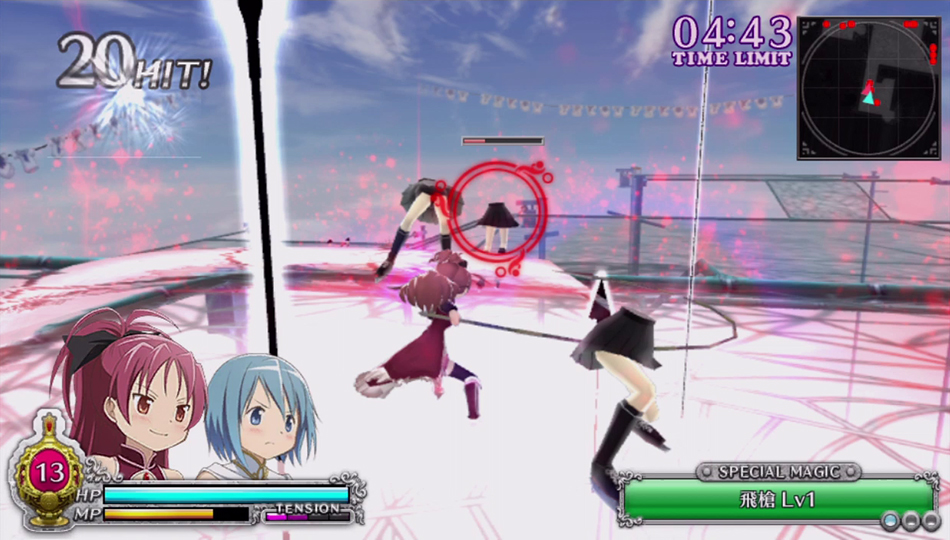
One of the game’s main selling points is your ability to pick a partner for each stage of the game and team up with him or her to do devastating combination attacks. The problem is, outside of said combination attacks, partners are largely useless. This is entirely thanks to The Battle Pentagram‘s — frankly terrible — partner AI.
While you will no doubt be wading into waves of enemies, slaughtering dozens at a time, partners will attack perhaps once for every 20 strikes you perform. It’s a rarity that they kill anything at all. They also have the annoying habit of running off to a second set of enemies and starting a second battle while you are still engaged in the first one. When it comes down to it, the best that can be said for your companions are that they make decent cannon fodder to keep the enemies distracted.
Bad — Lack of Variety
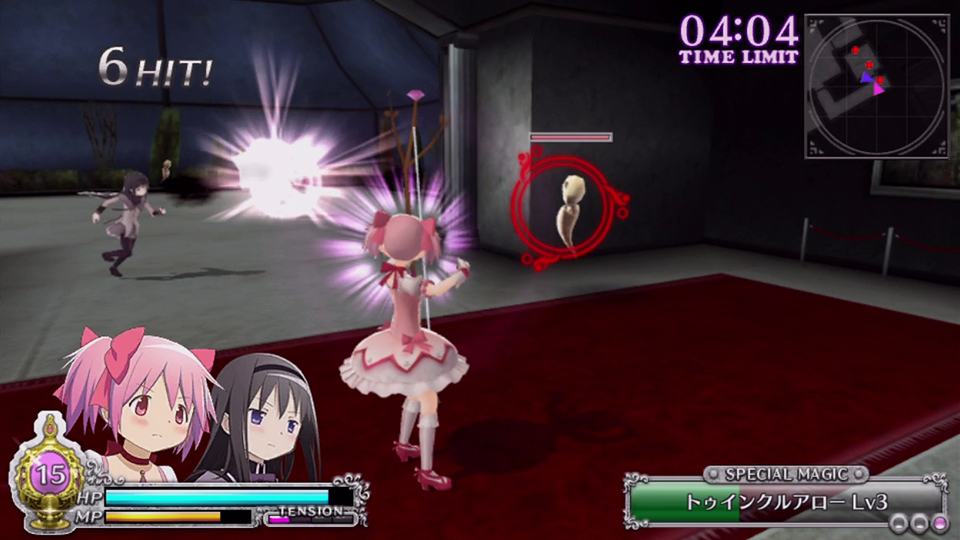
At first glance, The Battle Pentagram appears to be full of variety. There are several different witches — some seen briefly (or not at all) in the anime — and each comes with its own set of levels and minions. The problem is that these differences are merely skin deep. In reality, there are only three types of enemies: melee attackers, ranged attackers, and bosses. And like the partner character AI, the enemy AI is simple, predictable, and largely useless: when enemies enter range of either you or your partner, they attack. That’s it.
The levels themselves are hardly any better, as you will have run through the same level sections more than a few times before you finish the game. And while the visual style of each level set is at first eye-catching, it becomes rather bland rather fast as you encounter the same assets again and again.
Bad — A Deconstruction Without the Deconstruction
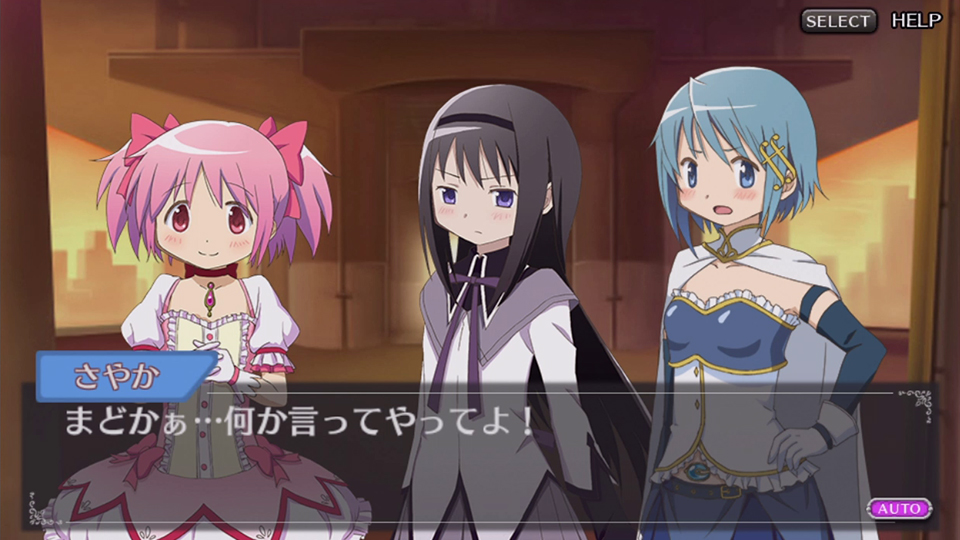
Above, I said the best thing in The Battle Pentagram is how it manages to keep the magical girls true to their anime iterations while putting them in situations we haven’t seen before. The game’s weakest point is that these situations are nearly the antithesis of everything that made the series unique and captivating.
The Madoka Magica anime is a deconstruction of the magical girl genre — extrapolating the hidden dark side of the cutest and most child-friendly of genres. The situations presented by the game fit far better in a stereotypical magical girl plot than in Madoka Magica. In one scene, Madoka and Kyoko go play some Dance Dance Revolution. In another, Mami and Sayaka sit around drinking tea. The game is basically one long chain of cutesy events about building friendship.
Oh, don’t get me wrong, the dark stuff is still there in the background; but to prevent the turmoil these revelations cause, Homura deftly avoids them to keep the group happy and positive. So besides getting an automatic bad ending your first time through the game, there’s little that matches the tone or depth of the anime.
Final Thoughts
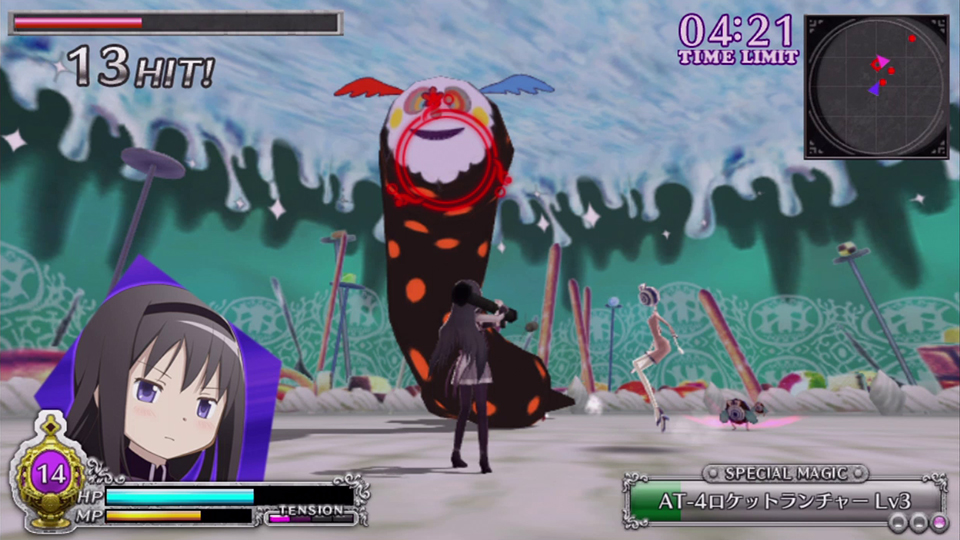
Madoka Magica: The Battle Pentagram is not a good game — it’s barely a serviceable one. While a lot of love and care has been put into customisation and how the magical girls play, the lack of competent AI and enemy variety makes the gameplay nothing more than a perpetual slog through the same crap again and again. Moreover, the plot of the game, while exploring the characters in ways unseen in the anime, acts as a double-edged sword — cutting away nearly all of what made Madoka Magica compelling to begin with.
When it comes down to it, Madoka Magica: The Battle Pentagram is a game for only the most hardcore of hardcore Madoka fans — those who simply must see every possible iteration of the story. If you are a newcomer interested in finding out what all the hubbub’s about or are even a casual fan, there are far better places to turn for your Madoka Magica fix.
Madoka Magica: The Battle Pentagram was released for the PlayStation Vita on December 19, 2013. There is currently no word on an international release.
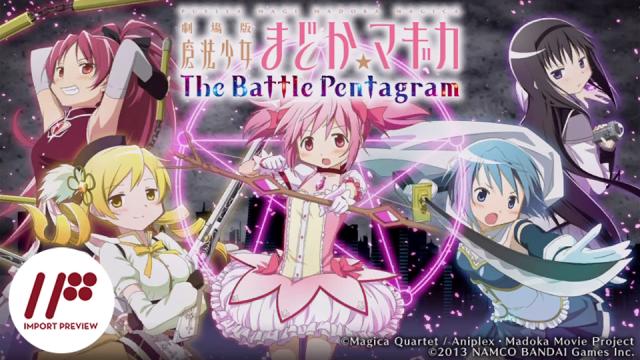
Comments